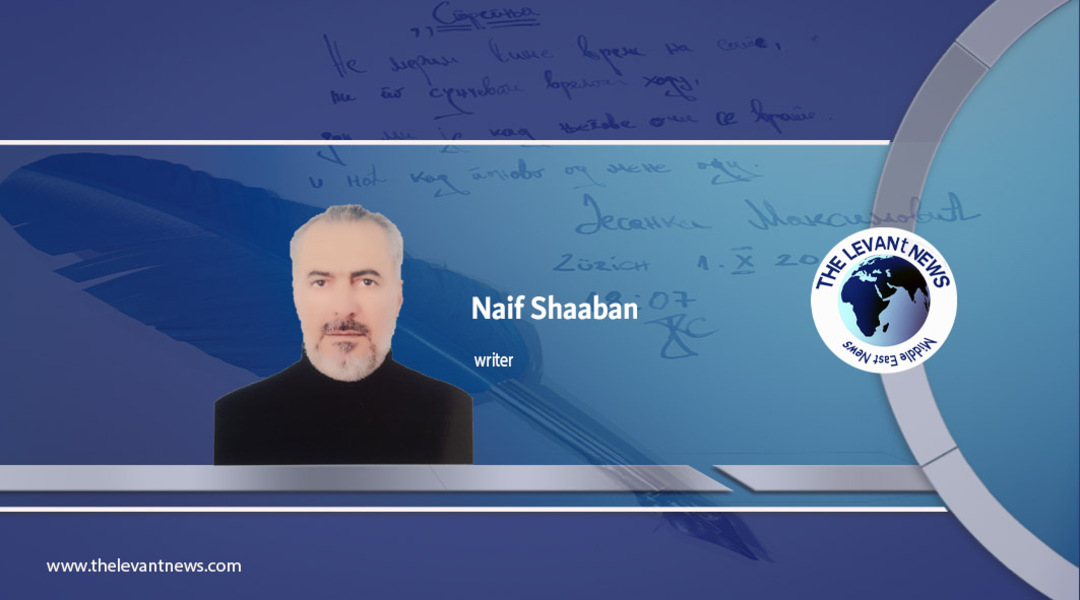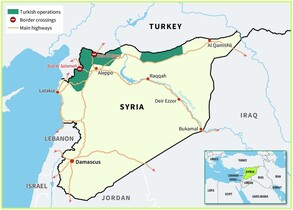-
Opening Borders with Assad regime...!

Opening Borders with Assad regime...!
Opening the borders to the Iranian, Baathist, and Russian occupation forces presents several challenges:
The security challenge arises as neighboring countries, with their technical and security capabilities, have been impacted by the smuggling and security penetration activities of drug and weapon cartels associated with the regime, Iran, and Hezbollah. Therefore, the liberated areas will continue to face these security challenges.
The occupation forces are the primary beneficiaries of any economic gains from the border crossings, prompting the residents of the liberated areas to question whether they have ever benefited from the crossings run by warlords.
The borders also provide an opportunity to establish economic ties between the occupying forces and those in the liberated areas.

The use of border crossings serves as a tool for soft normalization policies with Assad regime.
There is a concern that, over time, the regime will gain control over the liberated areas’ crossings, leading to them becoming tools of control in the regime’s hands amidst regional and international normalization efforts.
The decision to break ties with the regime and occupation forces is a strategic one that should not be compromised by economic or humanitarian considerations. The international community should push for regime change rather than pressuring for cooperation with the regime.
Regional and international actors need to stop engaging with the revolution in a naïve and indifferent manner and should avoid making arguments that do not serve the interest of the Syrian people.
The collaboration with the regime and occupation forces through border crossings is deemed a fatal strategic mistake for the Syrian revolution. The arguments in favor of such collaboration are seen as attempts to exploit the emotions of the revolutionaries, as well as the poverty and unemployment in the liberated areas, with false promises of improved conditions resulting from economic exchange.
Regional and international actors should alleviate the pressure and blockade on the liberated areas, cease using them as a market for their products, prevent warlords and corrupt individuals from controlling their resources, and work towards aiding their growth and prosperity. Additionally, efforts should be directed at compensating the displaced for their losses during the 13 years of the revolution and ending the guardianship in order to embody the desired idea of change.
As attempts to exploit the emotions of the revolutionaries, as well as the poverty and unemployment in the liberated areas, with false promises of improved conditions resulting from economic exchange.
Regional and international actors should alleviate the pressure and blockade on the liberated areas, cease using them as a market for their products, prevent warlords and corrupt individuals from controlling their resources, and work towards aiding their growth and prosperity. Additionally, efforts should be directed at compensating the displaced for their losses during the 13 years of the revolution and ending the guardianship in order to embody the desired idea of change.
Naif Shaaban
You May Also Like
Popular Posts
Caricature
BENEFIT Sponsors BuildHer...
- April 23, 2025
BENEFIT, the Kingdom’s innovator and leading company in Fintech and electronic financial transactions service, has sponsored the BuildHer CityHack 2025 Hackathon, a two-day event spearheaded by the College of Engineering and Technology at the Royal University for Women (RUW).
Aimed at secondary school students, the event brought together a distinguished group of academic professionals and technology experts to mentor and inspire young participants.
More than 100 high school students from across the Kingdom of Bahrain took part in the hackathon, which featured an intensive programme of training workshops and hands-on sessions. These activities were tailored to enhance participants’ critical thinking, collaborative problem-solving, and team-building capabilities, while also encouraging the development of practical and sustainable solutions to contemporary challenges using modern technological tools.
BENEFIT’s Chief Executive Mr. Abdulwahed AlJanahi, commented: “Our support for this educational hackathon reflects our long-term strategic vision to nurture the talents of emerging national youth and empower the next generation of accomplished female leaders in technology. By fostering creativity and innovation, we aim to contribute meaningfully to Bahrain’s comprehensive development goals and align with the aspirations outlined in the Kingdom’s Vision 2030—an ambition in which BENEFIT plays a central role.”
Professor Riyadh Yousif Hamzah, President of the Royal University for Women, commented: “This initiative reflects our commitment to advancing women in STEM fields. We're cultivating a generation of creative, solution-driven female leaders who will drive national development. Our partnership with BENEFIT exemplifies the powerful synergy between academia and private sector in supporting educational innovation.”
Hanan Abdulla Hasan, Senior Manager, PR & Communication at BENEFIT, said: “We are honoured to collaborate with RUW in supporting this remarkable technology-focused event. It highlights our commitment to social responsibility, and our ongoing efforts to enhance the digital and innovation capabilities of young Bahraini women and foster their ability to harness technological tools in the service of a smarter, more sustainable future.”
For his part, Dr. Humam ElAgha, Acting Dean of the College of Engineering and Technology at the University, said: “BuildHer CityHack 2025 embodies our hands-on approach to education. By tackling real-world problems through creative thinking and sustainable solutions, we're preparing women to thrive in the knowledge economy – a cornerstone of the University's vision.”
opinion
Report
ads
Newsletter
Subscribe to our mailing list to get the new updates!





















